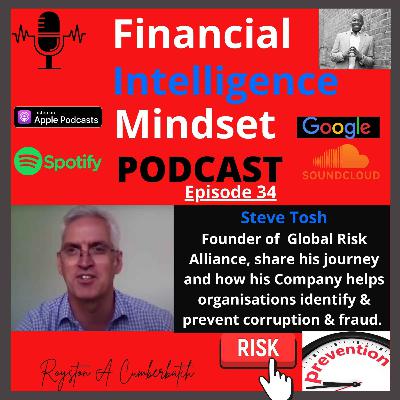How To Improve Your Credit Rating & Leverage Other People Money
Update: 2021-03-27
Description
A good or excellent credit score or credit rating is crucial for small businesses and investors looking to leverage other people's money (OPM Strategy).
If you have tried to access some credit services such as loans or some services or products on credit, you may be familiar with the term credit rating. In case you are not familiar with it, credit rating refers to evaluating a borrower's credit risk. It assesses the ability or likelihood of a borrower (or potential or prospective debtor) to pay back money borrowed.
Your credit score also dictates how you handled your personal or business financial affairs in the past and is used by suppliers/creditors and other companies to validate your creditworthiness.
Many people have a problem differentiating between credit rating and credit score. A credit report or credit file is obtained from credit rating bureaus or agencies and analyses a borrower's history, financial commitments, repayment behavior, and so on. It usually has a credit score that reflects the borrower's source of income and repayment history. Lending institutions can then use the credit report as a credit rating tool and assess the default risk vs the borrower's ability to pay the loan. If the risk is too high, the borrower will likely default or does not have an existing or prospective income source to pay back. The institution is likely to decline or offer the credit at a very high-interest rate to compensate for the risk. Credit scores mainly apply to individuals.
Financial services companies usually have a credit rating from of the credit rating agencies such as Standards and Poor's (S&P), Fitch Ratings, or Moody'; these agencies provide a rating system to help investors determine the risk associated with investing in a specific company, investing instrument or market.
Ratings get assigned to short-term and long-term debt obligations issued by a government or a corporation, including banks and insurance companies, among others. Each agency has a different measure varying from AAA/Aaa for low-risk investments to CCC/Caa to C/D for high risk to junk/in default investments.
In a nutshell, credit rating refers to a borrower's creditworthiness or the riskiness of an investment/debt provider. The borrower or debt provider may be an individual, a corporate body, a non-governmental organization, or a government (a state).
A good to excellent rating also helps you get cheaper and affordable credit, saving you a lot in interest expense.
Besides, it also makes a good impression on potential investors, clients, or customers, creating room for more business deals and expansion.
It is, therefore, time to pay greater attention to your credit rating or credit score. It can make a lot of difference not only to your finances but also to your business profits and overall wealth.
The benefits of maintaining a good to excellent credit score
· When you manage your repayments on time, this creates an overall positive impact on your credit file, especially when loans and credit card payments are always on time and you maintain a maximum 25% credit utilization ratio.
· Investors use the credit reports issued by credit rating agencies to decide if your business is creditworthy.
· The reports help them to avoid risky investments by avoiding companies with poor ratings.
· You are likely to get better interest rates from lenders if you maintain a good to excellent rating; it will also be easier to access bigger loans or pay back the loan as you will lower interest rates and save on repayment costs.
· An excellent credit rating gives you more bargaining power - this is helpful when you take in new investors into your business and need a new loan. For example - You can get better insurance deals when you have an excellent rating.
The impact or drawbacks of a Poor Credit Rating
· A lousy credit rating can mean a lack of access to much-needed funds to scale your business, and thus inability to sustain a business in the long run
· A bad credit score is a negative reflection on the company or borrower. It means that anybody who views your report will consider you "unreliable or untrustworthy2 or not creditworthy.
· You may lose potential clients or major business deals if they realize that you have a poor credit rating and, therefore, a business risk.
· Poor Personal credit ratings may spill over to your personal life since you may not be able to access credit facilities when in need.
As an expert in finance, business, and investing, I help business owners and investors improve their credit rating and access funds to grow their business. Please send me a message or email me at roy@mmedu.co.uk to see how I can help
FREE Resources
Online Business Growth Masterclass
https://www.thebusinessgrowthmastermind.com/ebook_cashflow
Download Money Management Ebook
https://www.thebusinessgrowthmastermind.com/manage-assets
You can find out more about me through social media profiles or by visiting my website www.racmacs.com.
Follow me on Social Media:
LinkedIn: https://www.linkedin.com/in/royston-andrew-cumberbatch-finance.
Instagram: https://www.instagram.com/royston.cumberbatch/
YouTube: https://www.youtube.com/feed/my_videos
Facebook: https://www.facebook.com/RoyceCum
Join Facebook Community: https://www.facebook.com/1190826847779960/photos/10156549866807120/?av=558592119
Hosted on Acast. See acast.com/privacy for more information.
Comments
In Channel
























